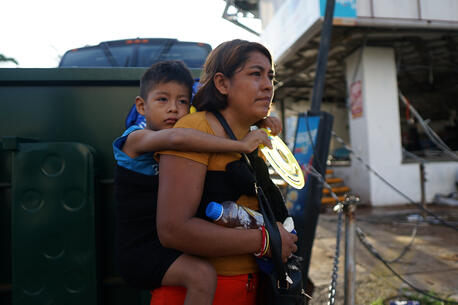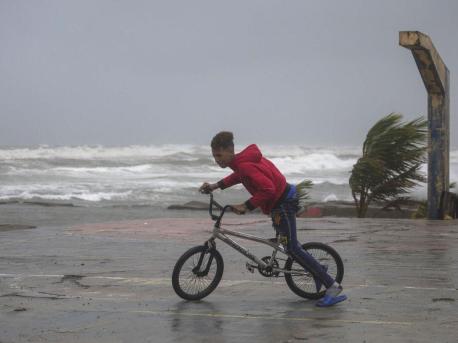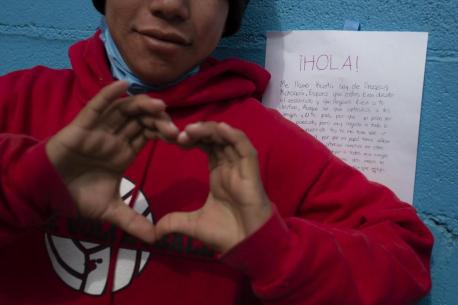Long Road Ahead for Hurricane Recovery in Central America
UNICEF issues an urgent appeal for support to assist families who lost everything to Eta and Iota. A look at the humanitarian response so far — and how much more needs to be done — in the hardest hit areas of Guatemala, Honduras and Nicaragua.
In the six weeks since back-to-back hurricanes crushed Central America's Caribbean coast and devastated large parts of Nicaragua, Guatemala and Honduras, UNICEF and partners have been able to reach thousands of affected children and families with critical services.
Yet the situation remains dire. Nearly 9.3 million people, including 3.5 million children, were affected by the Category-4 storms Eta and Iota, which made landfall within days of each other in early November. Thousands of people remain in shelters, facing heightened risks to their health and safety.
UNICEF's priorities are to work with partners to ensure access to enough healthy foods, and to clean water, sanitation and hygiene (WASH) supplies and services; and to ensure that vulnerable children and families stay safe, with measures in place to prevent violence, sexual exploitation and abuse — and the spread of COVID-19.

A UNICEF team member visits with children in Nicaragua's Lamlaya community to assess their needs and provide support in the wake of Hurricane Iota. © UNICEF/UN0373386/Espinoza Delgado
Roughly 29,000 people have already received mental health and psychosocial support. Another 11,000 women, girls and boys have benefited from gender-based violence prevention interventions.
In Guatemala, UNICEF has reached over 11,700 children with nutrition services in Hueheutenango and Alta Verapaz departments, two of the hardest hit areas. In Nicaragua's Waspam municipality and Jinotega department, WASH supplies have been procured for 5,000 families.
While these efforts are helping to meet the most pressing needs, they do not begin to cover the scope of what's required given the extent of the damage and the fact that floodwaters are expected to last another six months.
Damaged water systems and other critical infrastructure need to be rehabilitated. Hundreds of schools will have to be rebuilt, their classrooms re-equipped. Child-friendly spaces will need to be set up in the meantime to allow for learning and recreation.

A mother and child survey the damage to their El Muelle neighborhood in Bilwi, Puerto Cabezas, Nicaragua, following Hurricane Eta on Nov. 5, 2020. © UNICEF/UN0360925/Gómez/AFP-Services
"The needs are enormous," said Antero Almeida de Pina, UNICEF Representative in Nicaragua, during a recent briefing with colleagues. For many families in the affected communities, he added, "Everything is gone."
In the coming months, UNICEF aims to reach 646,000 people in need — including nearly 328,000 children — with a range of support and services, in partnership with national and local governments, NGOs and others. As of Dec. 21, only $5.3 million of the $42.6 million needed to fund the efforts had been raised.
Support UNICEF's hurricane response and recovery efforts. Your contribution can make a difference.
Top photo: Two boys in Bilwi, Nicaragua, search for scraps of wood to help their parents rebuild their house after it was destroyed by the strong winds and rains brought by Hurricane Iota. © UNICEF/UN0372812/Ocon/AFP-Services
HOW TO HELP
There are many ways to make a difference
War, famine, poverty, natural disasters — threats to the world's children keep coming. But UNICEF won't stop working to keep children healthy and safe.
UNICEF works in over 190 countries and territories — more places than any other children's organization. UNICEF has the world's largest humanitarian warehouse and, when disaster strikes, can get supplies almost anywhere within 72 hours. Constantly innovating, always advocating for a better world for children, UNICEF works to ensure that every child can grow up healthy, educated, protected and respected.
Would you like to help give all children the opportunity to reach their full potential? There are many ways to get involved.





